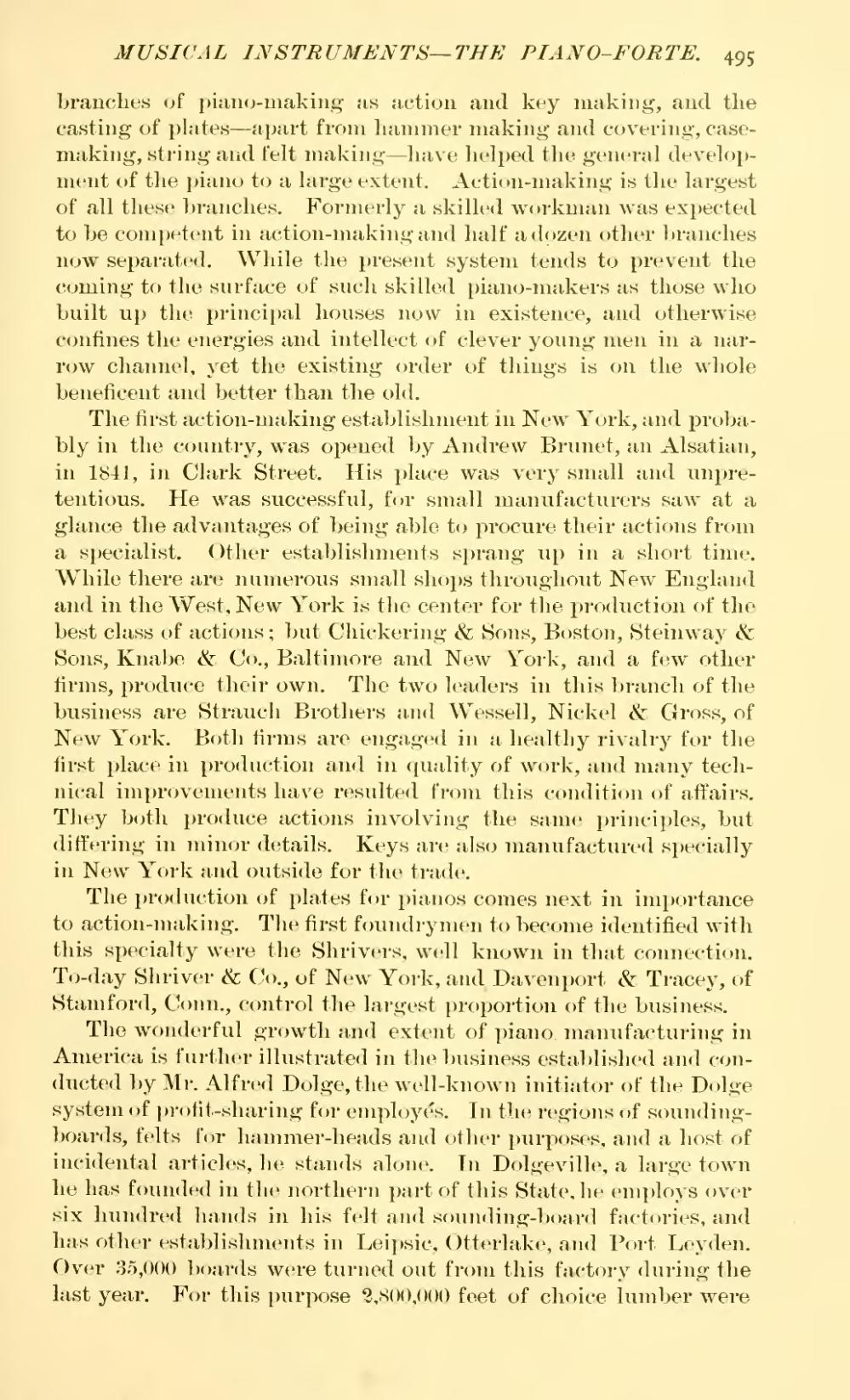branches of piano-making as action and key making, and the casting of plates—apart from hammer making and covering, case-making, string and felt making—have helped the general development of the piano to a large extent. Action-making is the largest of all these branches. Formerly a skilled workman was expected to be competent in action-making and half a dozen other branches now separated. While the present system tends to prevent the coming to the surface of such skilled piano-makers as those who built up the principal houses now in existence, and otherwise confines the energies and intellect of clever young men in a narrow channel, yet the existing order of things is on the whole beneficent and better than the old.
The first action-making establishment in New York, and probably in the country, was opened by Andrew Brunet, an Alsatian, in 1841, in Clark Street. His place was very small and unpretentious. He was successful, for small manufacturers saw at a glance the advantages of being able to procure their actions from a specialist. Other establishments sprang up in a short time. While there are numerous small shops throughout New England and in the West, New York is the center for the production of the best class of actions; but Chickering & Sons, Boston, Steinway & Sons, Knabe & Co., Baltimore and New York, and a few other firms, produce their own. The two leaders in this branch of the business are Straucli Brothers and Wessell, Nickel & Gross, of New York. Both firms are engaged in a healthy rivalry for the first place in production and in quality of work, and many technical improvements have resulted from this condition of affairs. They both produce actions involving the same principles, but differing in minor details. Keys are also manufactured specially in New York and outside for the trade.
The production of plates for pianos comes next in importance to action-making. The first foundrymen to become identified with this specialty were the Shrivers, well known in that connection. To-day Shriver & Co., of New York, and Davenport & Tracey, of Stamford, Conn., control the largest proportion of the business.
The wonderful growth and extent of piano manufacturing in America is further illustrated in the business established and conducted by Mr. Alfred Dolge, the well-known initiator of the Dolge system of profit-sharing for employés. In the regions of sounding-boards, felts for hammer-heads and other purposes, and a host of incidental articles, he stands alone. In Dolgeville, a large town he has founded in the northern part of this State, he employs over six hundred hands in his felt and sounding-board factories, and has other establishments in Leipsic, Otterlake, and Port Leyden. Over 35,000 boards were turned out from this factory during the last year. For this purpose 2,800,000 feet of choice lumber were
